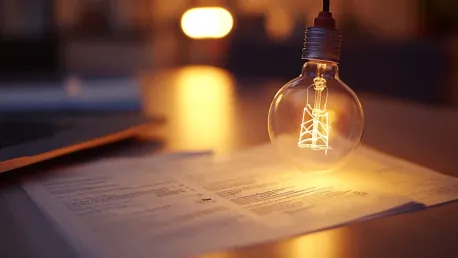In response to escalating electricity costs, Pennsylvania residents are exploring various strategies to tame their rising electric bills, with both immediate and long-term actions proving effective. The drive to lower utility expenses comes amid a sharp increase in energy prices over recent years, making it essential to consider how to manage these costs better.
Rising Energy Prices
Between May 2020 and May 2024, average electricity prices in Pennsylvania surged nearly 30%, putting a financial strain on many households. This significant increase has underscored the necessity for residents to adopt strategies that can help them save on energy costs. Not only does this include careful selection of energy suppliers but also investing in renewable energy sources and energy-efficient appliances.
Electing Energy Suppliers
While Pennsylvanians do not have the option to choose their electric utility, they can select their energy supplier, which can lead to savings. By using platforms like PA PowerSwitch, residents can compare different energy suppliers and possibly lower their rates by choosing fixed-price plans or suppliers offering green energy solutions. This option allows households to find more competitive rates and reduce their monthly bills significantly.
Solar Panel Installation
Investing in solar panels is another effective long-term strategy to cut down on electricity costs. The Inflation Reduction Act offers a 30% federal tax credit for those who install solar panels, making this a financially viable option. Beyond tax credits, alternative financing options such as solar leases and power purchase agreements can make solar energy accessible to more households. By harnessing solar power, residents can reduce their dependency on traditional electricity sources and enjoy significant savings over time.
Energy Efficiency Improvements
Everyday measures to enhance energy efficiency can result in substantial savings. Conducting home energy audits can identify areas where energy is wasted. Upgrading to energy-efficient heat pumps, windows, and appliances, as well as improving home insulation, are all effective ways to lower energy consumption. These improvements not only reduce electricity usage but also significantly enhance the comfort and value of a home.
Assistance Programs
Pennsylvania residents can also benefit from various utility assistance programs designed to help lower-income households. Programs such as the Customer Assistance Program (CAP), the Low-Income Usage Reduction Program (LIURP), and the Low-Income Home Energy Assistance Program (LIHEAP) provide financial assistance and energy-efficiency improvements. These initiatives play a crucial role in helping vulnerable communities manage their energy costs while also promoting more sustainable energy practices.
Legislation for Community Solar
Efforts to pass community solar legislation in Pennsylvania are ongoing, which, if successful, will allow more residents to benefit from renewable energy. Even those who cannot install solar panels on their property will have the opportunity to participate in community solar projects. This will broaden the accessibility of renewable energy and distribute its benefits more widely across the state.
Unified Understanding and Cohesive Narrative
Pennsylvania residents are actively seeking ways to combat rising electricity costs, implementing a mix of immediate and long-term strategies to lessen their financial burden. This surge in effort follows a significant uptick in energy prices over recent years. As utility expenses continue to climb, it has become almost crucial for residents to explore and adopt effective measures for better energy cost management. Immediate steps include everyday habit adjustments such as turning off lights when not in use, using energy-efficient appliances, and adjusting thermostats to optimal settings. On a larger scale, some households are considering investments in home improvements like better insulation, energy-efficient windows, and even solar panel installations. Programs and incentives offered by the state and federal governments also provide avenues for reducing energy costs. By adopting a multifaceted approach, Pennsylvania residents aim to mitigate the financial strain caused by escalating electricity prices, ensuring a more sustainable and affordable future for their households.









